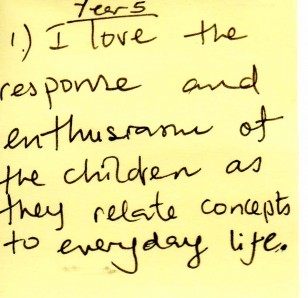Throughout my teaching career I have always enjoyed teaching science in my classroom. I found that the children were enthusiastic about science learning and they often thoroughly enjoyed the practical activities, especially when I included technology such as data logging and digital microscopes. However, teaching this subject does have a variety of problems such as: finding resources, organisation of practical activities and how to make time for longer investigations whilst trying to fit in other subjects. In addition to these issues there is another area that always had me perplexed. Why were children reluctant to write about their work following their practical investigations?
You know that bit; when you tell them they have to record and write what they have discovered, and there appears to be an audible groan go through the classroom! (It’s not coming just from the teacher and teaching assistants!)
I never had problems with incorporating other types of writing into science such as poetry, or indeed getting children to write up work on information they had found out about the topic via books or the Internet. But when it came to this part of the writing process, there were often clear signs that they wanted this bit over and done with as quickly as possible!
Since 2012 I have been running courses for teachers on how to develop science in the primary classroom and it appears I am not alone on this issue, which I must say was quite a relief. Some positive comments from teachers about teaching science included:
- The excitement in brings out in children – seeing their sense of wonder
- The practical elements of teaching science and the opportunities to test children’s ideas
- Practical activities and this…
In addition to the issues I mentioned above and some teachers worrying about their own subject knowledge in science, the following comments appeared about what teachers disliked about teaching science
- The poor way in which experiments and results are recorded, kills enthusiasm
- Formal methods of recording and this…
I know that technology could offer many solutions to this lack of enthusiasm with children reporting back about their learning; however, I am interested in getting children to enjoy the writing process too. Whilst I am a fan of technology, children still need to enjoy the writing process in all its forms or should I say try to enjoy. I also believe we need to question if children have to make their recordings so formal, especially within a primary school setting? Surely there are more creative ways for children to write down what they have learnt or carried out during their science investigations?
Some initial ideas:
- Use the same genre that is being taught in literacy – this seems fairly obvious but sometimes does get overlooked
- Making a cartoon strip of their investigation
- Newspaper report of the events leading up to their results
- Write their investigation in the form of a science fiction story
These are just some initial ideas and some may not work with some topics. If you are a writing specialist maybe you would like to suggest some ideas to add to this list. Have you as a class teacher used a writing idea that your children really enjoyed, if so please do let us know about their work. It would be lovely to share ideas on how to motivate children with their science writing.
I recently came across some work that I did with my year four children. This was early on in my career and I thought I would post their work here. We had entered a competition to write a science newspaper (can’t for the life of me remember what this was after all this time) and the children were very keen to take part. There was a variety of writing during the project and I was often amazed at how my reluctant writers would regularly stay in class during their breaks to edit or finish off work. We also managed to interview the scientists via email who were involved in the eclipse, my goodness weren’t the children excited when they had a response!
As well as learning about eclipses, they also investigated features of newspapers and made sure some of these were included in their paper. It was this experience along with a few other topics that formed my philosophy about writing in class. We should always try to have a meaningful purpose for why they are learning to write in a particular style, if they have a bigger audience for that writing via blogs or competitions then so much the better. I wonder where these children are now?
Subscribe to our newsletter for more updates and other resources to support this topic







No comments yet.